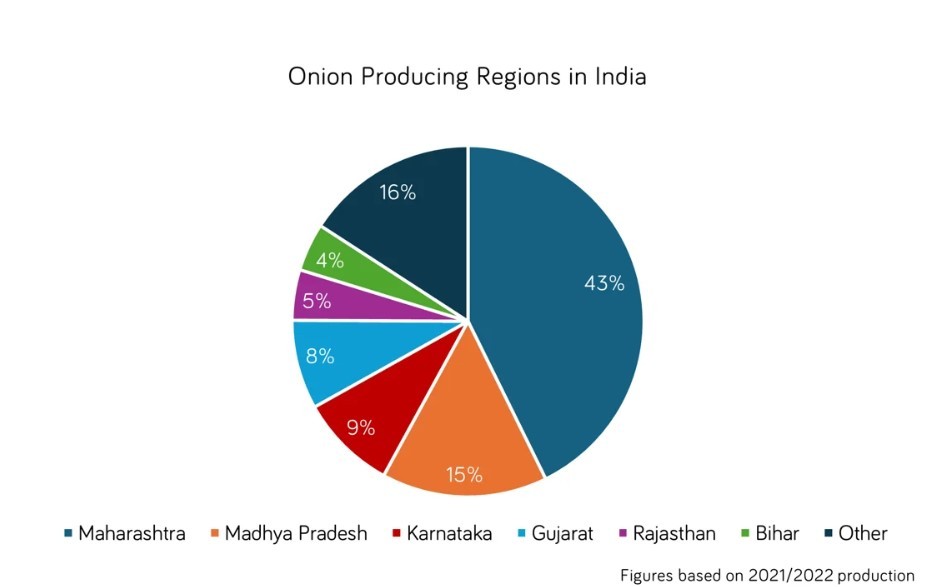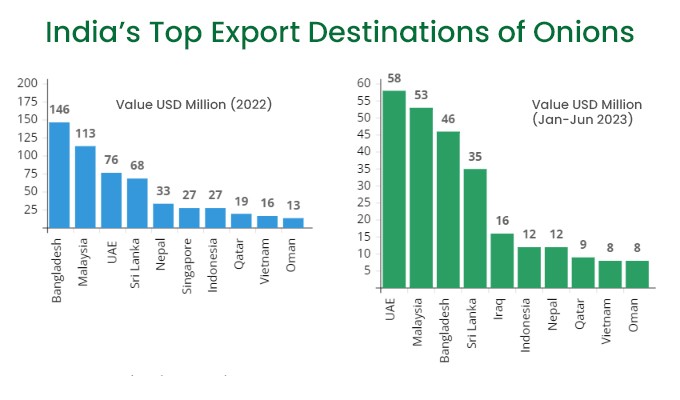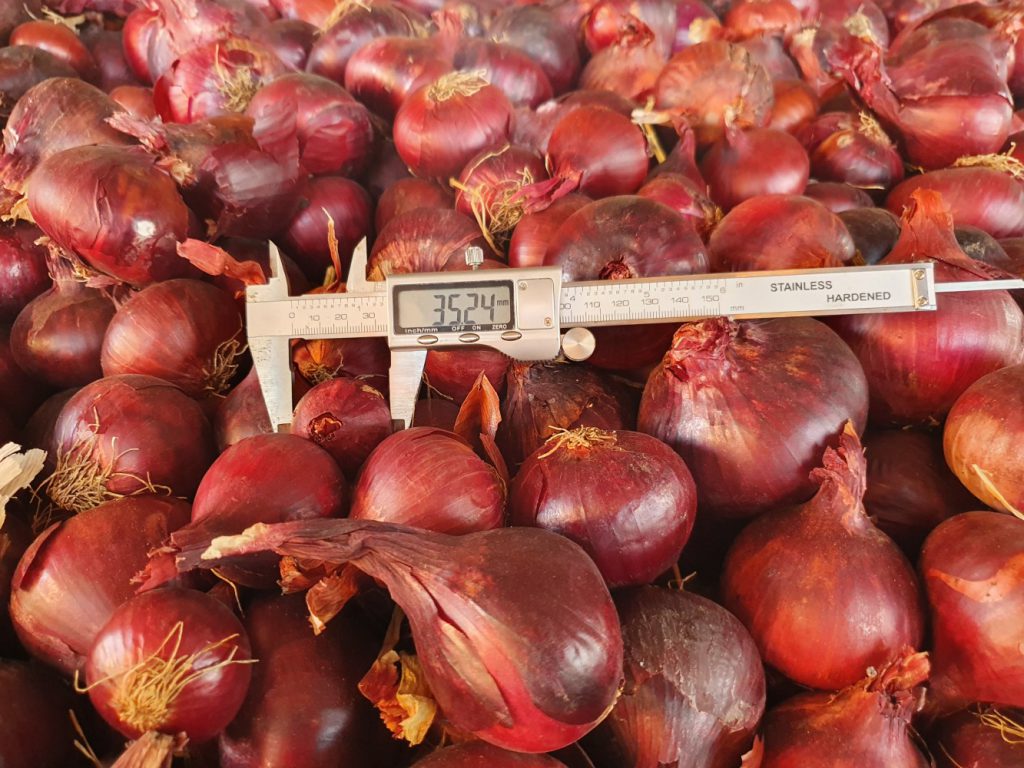Navigating Agricultural Challenges: India’s Onion Procurement and Malaysia’s Trade Diplomacy
Mostafa Adel
India’s Strategic Onion Procurement Initiative
India has launched an ambitious onion procurement program, setting a target of 0.36 million hectares (MH) for kharif onion cultivation this year, a 27% increase from the 0.28 MH reported in 2023. This initiative aims to enhance food security and stabilize market prices through strategic procurement and buffer stock management.
So far, the government has procured nearly 0.45 million tonnes (MT) of onions from farmers at an average price of Rs 25/kg, significantly higher than the Rs 17/kg average in FY24. This procurement, managed by cooperatives like Nafed and the National Cooperative Consumers’ Federation of India, is on track to meet the 0.5 MT target.
The government plans to release onions from the buffer stock in a calibrated manner to maintain price stability. Retail prices currently hover around Rs 40/kg but are expected to decline as the kharif crop enters the market. Sowing of kharif onions has begun in Karnataka, Maharashtra, and Madhya Pradesh, supported by adequate monsoon rains.

Global Impact of India’s Export Restrictions
India’s export restrictions on rice, onions, and sugar, imposed to curb domestic inflation ahead of the 2024 general elections, have significantly affected global markets. These curbs cover all varieties of rice and significant quantities of onions and sugar, tightening global supplies and driving up prices for importing countries.
The restrictions have led to higher prices for Asian buyers, particularly in countries like Bangladesh, Nepal, and Sri Lanka. These nations are scrambling for alternative suppliers like China, Egypt, and Turkey, despite higher costs and logistical challenges.

Malaysia’s Strategic Trade Requests
Amid these restrictions, Malaysia has formally requested India to ease curbs on essential commodities. Datuk Seri Johari Bin Abdul Ghani, Malaysia’s Minister of Plantation and Commodities, emphasized the country’s critical need for rice, onions, and sugar. He proposed special trade arrangements and investments in India’s National Mission on Edible Oils-Oil Palm (NMEO-OP).
Ghani’s proposal includes sharing expertise, seeds, and technology to boost India’s palm oil production, aiming for 2.8-3.0 million tonnes by 2032-33. This collaboration could significantly reduce India’s import reliance.
Malaysia, along with Indonesia, is a major supplier of palm oil to India. Malaysia has assured that all palm oil exported to India is produced sustainably, adhering to international labor laws and ensuring ethical production practices.

Sustainable Agriculture and Future Collaborations
Malaysia’s approach to sustainable palm oil production and its willingness to invest in India’s agricultural initiatives highlight a forward-thinking strategy for mutual benefit. By leveraging Malaysia’s expertise in palm oil production, both countries can enhance agricultural output and create a resilient trade framework.
The collaborative efforts between India and Malaysia could pave the way for sustainable agricultural practices and robust trade relations, balancing local needs with international demands.
Conclusion
India’s comprehensive agricultural policies and Malaysia’s proactive trade diplomacy exemplify the complex interplay between domestic priorities and global market dynamics. Strategic partnerships and sustainable practices could lead to a more resilient agricultural sector, benefiting both countries and stabilizing global markets.
Best Regards
Mostafa Adel
Last updated November 10, 2024